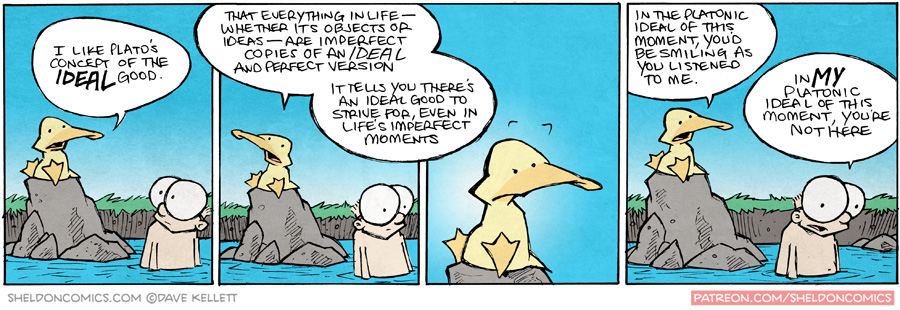Ex-Scientologist Paul Haggis, director of the Oscar-winning movie Crash, complains that “We lock up a portion of our own mind. We willingly put cuffs on. We willingly avoid things that could cause us pain, if we looked. If we can just believe something, then we don’t have to really think for ourselves, do we?” Which religion is not like that? Indeed, but I’m wondering more and more which society is not like that? I very much understand that living in a society involves trade-offs. To live together in relative peace and benefit from the positive sum gains of specialization and trade, not to mention security, involves forfeiting one’s right to murder, steal, rape, and slander. That is all for the best. However, in a recent book titled The Hedonist Manifesto, Michel Onfray described what he considered the difference between Christian atheism and post-Christian atheism. It was an idea that had been independently floating around in my own mind for a while, but without a label or vocabulary to discuss it very clearly. A Post-Christian Atheism I think the above passage illuminates exactly what it is that we continue to “willingly cuff” ourselves with. There are so many culturally built norms, mores, and expectations of individuals that simply make zero sense in an atheist, liberal, materialist world. Onfray does a great job detailing many of the values that would change or be rethought and reconstructed given you take the world as it is and not how religion or ideology want it to be.
It will remain forever strange to me that the original sin in Judeo-Christian beliefs was eating from the tree of knowledge and that upon doing so worldly pleasures were equated with sinfulness. This leads naturally to the idolatry of suffering that crystallized so perfectly with the passion of the Christ. There is a lot of suffering in the world, but much of it is our own doing, particularly when we make it an object of worship and disdain pleasure as its better half of life. I think it’s well past time that we simply stop helping the world by adding to the amount of suffering and simply work to create a world with as much happiness as possible, without fear or disgust at the thought of pleasure. Pleasure isn’t wrong. Enjoy it while it lasts. We get about 80 years to do so, some of which we will spend sick and infirm. A Minimal List of Pleasures for All
Living with and engaging in the available pleasures outlined above is most of what we can ask for from daily life. If we add a sense meaning and purpose to the simple pleasures, we are ninety nine percent of the way to a well-lived life. Let’s take of the cuffs and leave the Christian atheism behind. We have all the power needed to create a world from critical reflection if we just decide to live without the Platonic idealism of the past 2,500 years. The costs of idealism seem to continually rise, with the list of atrocities by Onfray above being just the tip of the iceberg. A turn to liberal, hedonist, utilitarian, materialism promises to be a life full of greater well-being, happiness, and satisfaction, with less pain, suffering, and death.
0 Comments
Leave a Reply. |
Archives
November 2017
|

 RSS Feed
RSS Feed